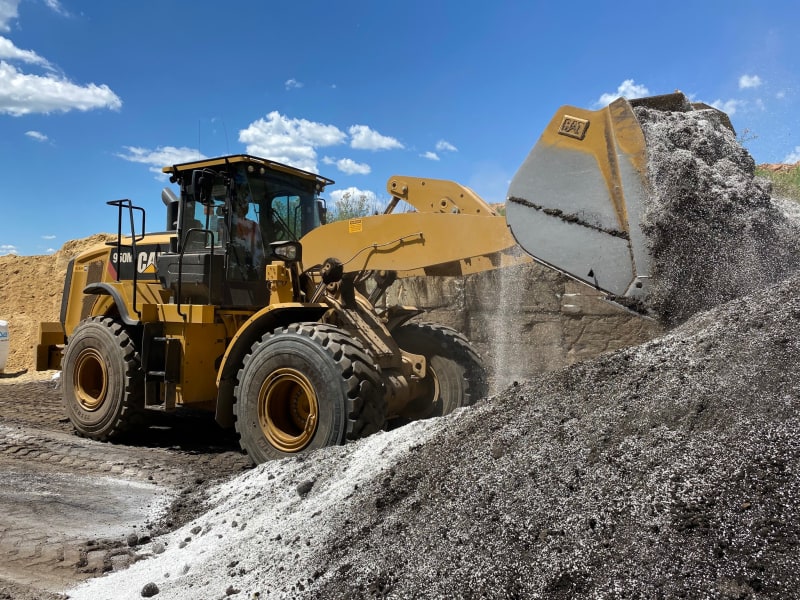Aggtrans Soil Solutions: Decades of Expertise
By Cedric Pittman · Published May 28, 2025

Decades of Expertise
At Aggtrans, we are more than just a supplier; we are a trusted soil specialist with decades of experience providing high-quality soils for a variety of construction, landscaping, and environmental projects. We produce our own topsoil, stock fill dirt, core trench clay, and a diverse range of specialty soils tailored to meet specific needs. Here is why Aggtrans is the go-to source for all your soil requirements:
Why Choose Aggtrans for Your Soil Needs?
✔️ Local Expertise: Being Maryland-based means we understand the region's unique soil requirements. We strictly follow municipal specifications to ensure our products meet the necessary standards for both environmental and construction projects.
✔️ Approved and Certified: Our soils are certified for use by the Maryland State Highway Administration (SHA) and the Maryland Department of the Environment (MDE). They are fully approved for a range of environmental, civil, and construction applications.
✔️ Quality Control: From production to testing, we maintain strict quality control over all our soil products. This ensures that every batch meets the high standards required for your projects.
Our Range of Soil Products
Topsoil & Specialty Soils
In addition to our general soil offerings, Aggtrans produces a variety of topsoil and specialty soils, including custom mixes designed to meet specific regulatory standards and project requirements. Here's a list of our specialty products:
SHA Screened Topsoil
Maryland State Highway Administration (SHA) approved, ideal for general landscaping and construction projects. It’s a reliable, versatile option for a wide range of applications.
Fill Dirt
General-purpose fill material is ideal for grading and leveling. Making it versatile for many uses.
Core Trench Clay
Used in core trench applications, such as dam construction and stormwater management. This clay offers low permeability and structural support.
SHA Bio Soil
Enhanced organic content, meeting SHA specifications. Perfect for bio-retention areas and ecological applications, ensuring environmental benefits and healthy growth.
MDE B.4.1 Planting Soil
Approved by the Maryland Department of the Environment (MDE), this soil is specifically formulated for planting beds that require a precise nutrient profile for optimal plant health and growth.
MDE B.3.2 Planting Soil
MDE is approved and designed to meet specific planting requirements, ensuring ideal conditions for growth, especially in projects where plant vitality is critical.
Montgomery County Bio Soil
Compliant with Montgomery County regulations, this bio soil is tailored for bio-retention systems and stormwater management projects, contributing to effective environmental control.
Wetland Soil
Formulated for wetland restoration projects, this soil supports diverse plant species in saturated conditions, making it perfect for restoring wetland ecosystems.
DC Sand-Based Structural Soil
Designed for structural applications, this soil provides essential load-bearing support while allowing for root growth, ideal for urban landscapes that need both strength and sustainability.
DC Bio-Retention Soil
Compliant with DOEE regulations, this soil is designed specifically for stormwater management in bio-retention systems, helping control runoff and support plant growth in urban areas.
DC Plant Bed Soil
A nutrient-rich mix perfect for garden beds and landscaping projects. It creates a fertile foundation for plant establishment and healthy growth in a variety of outdoor spaces.
DC Lawn Soil
A balanced soil mix that promotes healthy lawn growth, is suitable for both residential and commercial applications. Whether you're planting a new lawn or improving an existing one, this soil offers the right foundation for success.
Measurement & Testing: Precision in Every Load
At Aggtrans, we don’t just sell soil—we ensure that it’s the right soil for your project. Every product undergoes testing for key parameters such as sand, silt, clay content, and nutrient levels to meet regulatory standards. We also provide conversion yield factors for all soil mixes, which help with accurate volume-to-weight conversions. This is essential for precise material estimation and cost calculation, so you can plan your project effectively.
For detailed specifications, and pricing, or to request a quote, visit our Soil Products page or contact our dedicated sales team.

Tonnage vs. Cubic Yards: Why It Matters
In the construction industry, materials like soil are often measured in cubic yards. However, at Aggtrans, we firmly believe that tonnage is the most accurate and consistent measurement. Here’s why:
🎯 Moisture and Density Variations:
Soil weight can vary greatly depending on moisture content, soil type, and compaction. For example, dry, loose soil weighs less than wet, compacted soil. Relying on cubic yards alone can lead to inaccurate estimates, impacting your project’s budget and timeline.
🎯 Precise Measurements with Tonnage:
We measure all our materials by ton because it gives a precise, consistent measurement that ensures the correct amount of soil is delivered to your site. Our scale is calibrated to provide accurate weight, not estimated volume.
🎯 Accurate for Critical Projects:
When soil is measured by ton, it eliminates the uncertainties that moisture content or density might introduce. This precision is crucial for projects like foundation work, landscaping, and construction, where the exact amount of material is vital to the project's success.
PLEASE NOTE: Testing results are only applicable to the material at the time of production. Once the material leaves Aggtrans' custody, we are no longer responsible for any changes in the testing results. Environmental conditions, weather, job site factors, or other variables can affect the material after it leaves our premises, and it is the responsibility of the purchaser to ensure that the material meets their requirements upon delivery or at the job site. The manufacturer/supplier is not responsible for conversion factors related to settled or compacted material, job site conditions, stockpiling, or weather conditions. The contractor's estimating team is responsible for determining the appropriate conversion factor based on the required installation method.
